SHFPACT 2022-2023 Annual Report
Supported by funding from the ACT Government and the generosity of our clients, volunteers, donors and community.
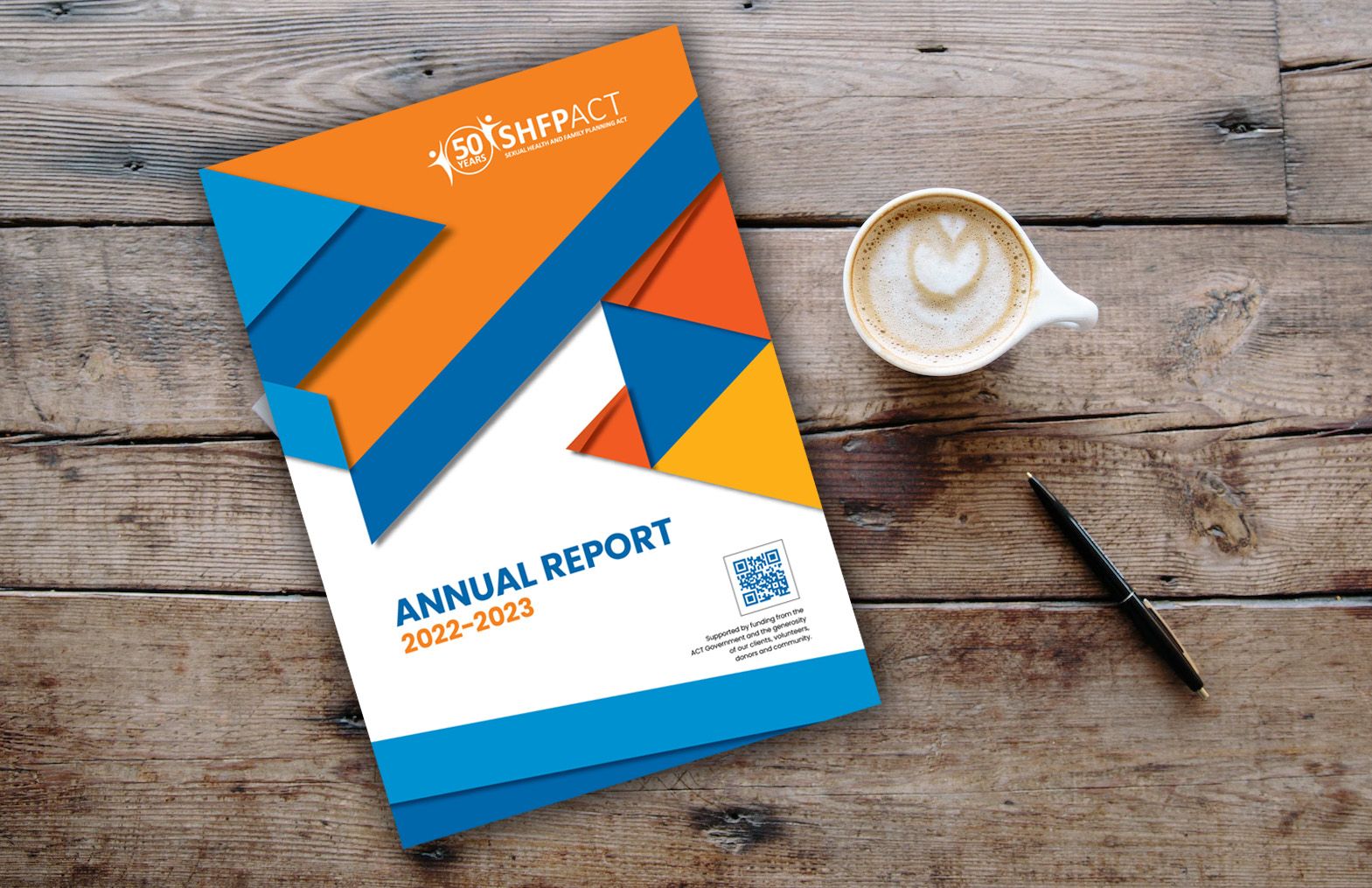
READ DIGITAL REPORT
- PRESIDENT & EXECUTIVE DIRECTOR REPORT
- SHFPACT COUNCIL
- OUR WORK
- GOALS AND OBJECTIVES
- VALUES & PRINCIPLES
- OUR SERVICES
- FINANCIAL PERFORMANCE
- CASE STUDY : CERVICAL SCREENING
- SAFER GIRLS SAFER WOMEN
- SPECIAL THANKS
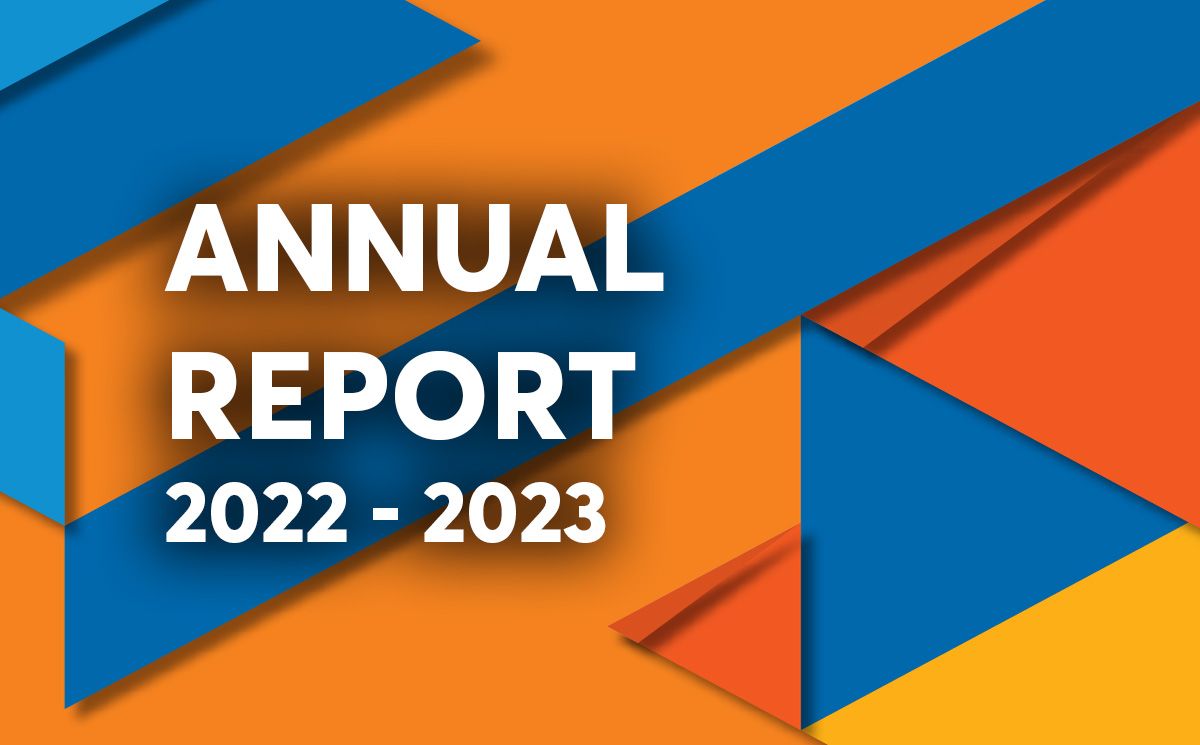
PRESIDENT & EXECUTIVE DIRECTOR REPORT
The SHFPACT team has not had a moment to catch its breath this year!
SHFPACT works across the nexus of the health, education and community services industries. As a community we were all grateful to be moving beyond the public health demands of the pandemic and beginning to return more confidently to a new normal for services and activities. However, we observed that this last year has been especially challenging for schools and the teaching workforce, hospitals and healthcare services and the medical, nursing and allied health professionals that staff them, and for both support workers/carers and people with disability they support. While much of the rest of the community began to move on, the health risks and workforce shortages continued. And we acknowledge this continuing impact for our key partners in these areas.
The staff team at SHFPACT has grown significantly in the last year, bringing fresh eyes and perspectives to our longstanding work, standing up new programs, services and activities. This provided us the opportunity to reflect on both the challenges and successes of our work promoting sexual and reproductive health and rights in the Canberra community, and to plan for how we continue to respond to unmet and emerging needs.
We welcomed Sarah-Jane Olsen as a new Senior Director, with oversight on quality improvement, and leading new accreditation projects for SHFPACT with the management team.
SHFPACT is pursuing clinical accreditation under the newly released Primary and Community Healthcare Standards by the Australian Commission for Quality & Safety in Health Care, and for non-clinical services under the Australian Service Excellence Standards (ASES). SHFPACT also continues as a registered NDIS services provider.
We were excited to recruit our first group of youth peer educators in the Interface Project. Funded by ACT Health ‘Healthy Canberra Grants’ program for two years, this project is delivered in collaboration with Hepatitis ACT, and engages youth advocates as peer educators to develop small health promotion projects for sexual health and blood borne viruses (BBV) needs.
The youth peer educators are engaged as casual educators at SHFPACT, participate in a training and development program, participate in health education and community health promotion activities run by SHFPACT, Hepatitis ACT and other partners, and identify key sexual health and BBV issues for Canberra young people. This project also worked with members of the Youth Advisory Council and artist BOHIE on developing health relationships and sexual consent campaign resources and materials.
We also see the project as an opportunity to build the future sexual health promotion workforce, by providing genuine employment opportunities for young people in the industry. Nine youth peer educators joined us in early 2023 for the first year of the project.
We farewelled Dr Jenny Leung from the clinical services team in 2022. Jenny Leung worked for SHFPACT for over 30 years, and in the last 15 years as a senior medical officer with primary responsibility for coordinating SHFPACT’s medical education program. Jenny’s embrace of grandparenting is as complete and strong as her commitment and dedication to reproductive and sexual health clinical care and primary healthcare workforce development during her time working at SHFPACT.
The clinical leadership team was joined by Drs Martina Mende and Tara Frommer. Martina and Tara bring fresh energy and perspective to this work, and have played a critical part in establishing a new clinical services model for pelvic pain/endometriosis services at SHFPACT, as well as reinvigorating our program of extended skills placement for GP registrars, building a new pipeline of candidates for this position. They join Dr Clare Holberton, Dr Rosa O’Kane, and Manager Clinical Services Anne Carroll in the clinical leadership team.
We welcomed new staff to the Safer Girls Safer Women project, building on the consultancy team who helped initiate the project activity under Senior Director Sheridan Kerr’s direction in 2022.
The project has successfully identified project partners across the country to collaborate on SoSAFE! implementation projects, to consult on the development of guidelines that build workplace cultures for safety and relationships, not just harm prevention compliance, and put the voice and experience of people with disability at the heart of the project.
The first symposium in late 2022 was well attended both in person and online. All speakers and presenters at the Symposium were women and girls with disability, and participants provided positive feedback on the event’s inclusive practices.
The project Advisory Group has welcomed diverse, intersectional membership to offer advice and reflection on ensuring the voice of women, girls and other people with disability remains central. Across Australia, the project is working on projects that build on SHFPACT’s SoSAFE! Framework and address the practices and confidence of the workforce to engage relationally to build a culture of safety. Our project partners reflect a diverse range of professionals, organisations and contexts.
In late 2022, SHFPACT was identified as an obvious candidate as the ACT hub for new Australian Government funding for pelvic pain and endometriosis GP clinics. We were gratified by this acknowledgement by our colleagues in primary healthcare, and worked with Capital Health Network to prepare an ACT submission for the funding.
SHFPACT hosted the national announcement and launch of the new clinics by Assistant Minister for Health Ged Kearney, as one of 21 programs ultimately resourced across Australia. While the models of delivery will vary across Australia, SHFPACT’s proposal centres significantly on addressing the systemic gaps and workforce development alongside standing up a new primary care based access point.
We have valued the engagement and support of our colleagues in Canberra Health Services in establishing the project and our new service model, which represents an important evolution of SHFPACT’s scope of clinical practice.
Endometriosis and pelvic pain are notoriously poorly responded to, with limited service availability for what is a complex, dynamic and evolving experience that requires multidisciplinary care. We also recognise the opportunity that early health education on period pain and pelvic pain can potentially have on improving health outcomes over the life course for people with pelvic pain.
On the advocacy and public policy front, SHFPACT made submissions and attended hearings for the Australian Senate inquiry into universal access to reproductive healthcare in December 2022, supporting and participating in a nationally coordinated submission by Family Planning Alliance Australia.
This inquiry has triggered important new policy and advocacy engagement across the reproductive and sexual health spectrum. Locally, SHFPACT contributed a submission and provided evidence at hearings of the ACT Legislative Assembly inquiry into abortion and reproductive choice in the ACT. And we participated in the consultation facilitated by Women’s Health Matters to enact the funding commitments announced by ACT Government in ACT Budget 2022 to fund abortion access and long-acting reversible contraception for Canberrans.
The complexity of our own organisation’s service and business models positions the organisation well to contribute to health system design thinking. SHFPACT continued to contribute to the design and strategise phases of health service commissioning.
The extended process as ACT Health builds its internal capacities to undertake a major reform in the way health needs and services are identified, designed, commissioned and delivered has been taxing.
Due to the narrow policy focus on STI/BBV in the ACT’s health policy settings, we have had to maintain a close involvement in these processes to ensure that perverse outcomes do not occur because the organisation’s work in a wider sexual and reproductive health and rights framework is misunderstood.
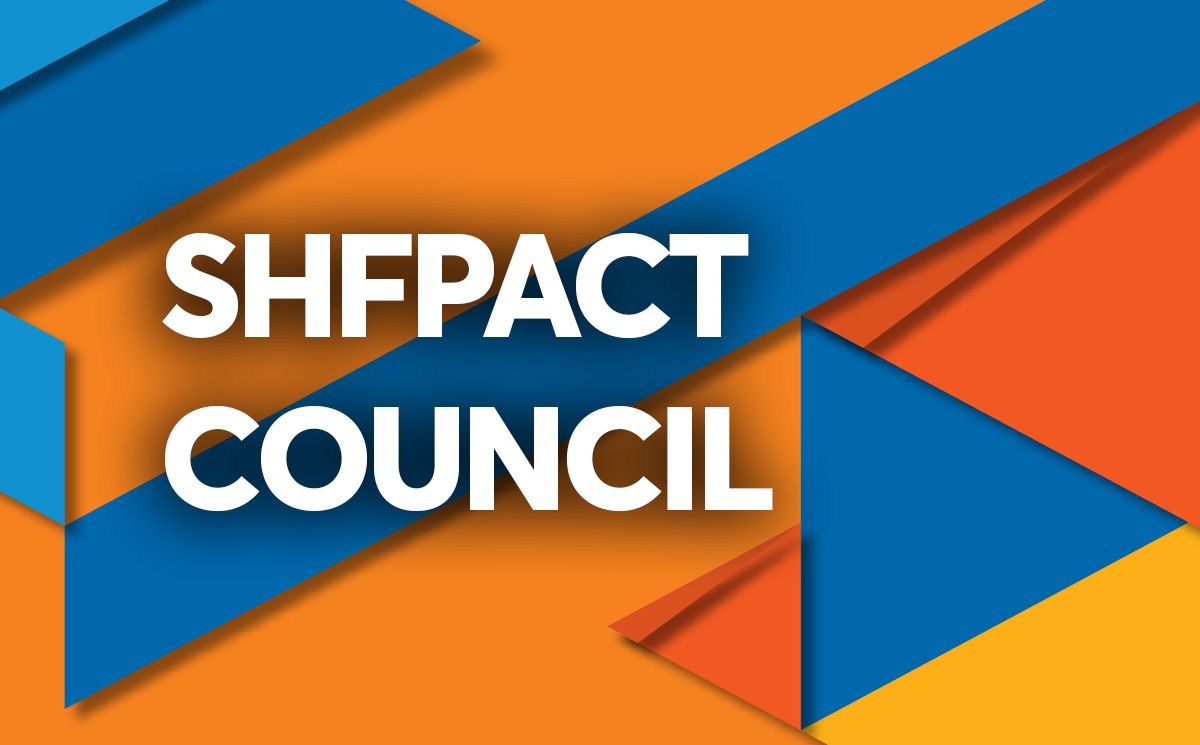
SHFPACT COUNCIL
SHFPACT Council is the governing body of the organisation, its members are elected from the wider membership at Annual General Meetings for two-year terms, or appointed to fill vacancies throughout the year with appointed member terms ending at the subsequent AGM.
Sophie Fisher stepped back as President of the Council in early 2023, and remained a member of the Council. Zyl Hovenga-Wauchope stepped into the role for the remainder of the 2023 financial and calendar years. Continuing/re-elected members were Melissa Hobbs, Bronwyn Clark, Josephine Schumann and Rochelle White.
In early 2023, the Council undertook a recruitment process to fill casual vacancies, a key part of SHFPACT’s long-term succession planning approach to Council membership, and this year in anticipation of some longer serving members ending their terms at the 2023 AGM. Five new Council members were successfully appointed through this process: Veronica Williams, Amelia Druhan, Alexandra Grant, Aditi Malhotra and Angelina Inthavong.
In addition to ensuring stable succession in governance, the Council in 2022-2023 has focused on the strategic environment as the organisation continues towards new funding arrangements and opportunities, while managing significant growth after a long period of resource uncertainty.
The Council also turned its attention to the review and update of investment policy guidelines, and the best use of increased cash-at-bank resources as interest rates increase. Council members worked with executive management on refreshing reporting to monitor compliance and communicate the impact of our work.
The Council’s Strategic Plan was presented to members at AGM 2019 and due to expire in 2023. Almost immediately, the impacts and uncertainty of the global COVID pandemic and public health response arrived, and as with most nonprofit organisations, the immediate attention of the organisation focused on ensuring the safety, wellbeing and adjusted service delivery for our staff and the community we serve. In early 2023, the Council reviewed, updated and confirmed the strategic directions document as still relevant as the organisation moves through major changes in the ways ACT Government commissions health services, and extended the timeframe of the Strategic Plan for a further two years. During the year the Council reviewed and updated its governance policy document.
Council Members 2022-2023
- PRESIDENT Sophie Fisher (to February 2023)
- PRESIDENT Zyl Hovenga-Wauchope (from February 2023)
- VICE PRESIDENT Melissa Hobbs
- SECRETARY Lucy Mitchell
- TREASURER Josephine Schumann
- MEMBER Bronwyn Clark
- MEMBER Rochelle White
- MEMBER Veronica Williams (from June 2023)
- MEMBER Amelia Druhan (from July 2023)
- MEMBER Alexandra Grant (from July 2023)
- MEMBER Angelina Inthavong (from July 2023)
- MEMBER Aditi Malhotra (from July 2023)

OUR WORK
Sexual Health and Family Planning ACT (SHFPACT) is a community not-for-profit, non-government, membership-based incorporated association and an ATO-endorsed health promotion charity and deductible gift recipient. We have served the Canberra community and the region for nearly fifty years. There are a range of ways you can engage with us by becoming a Friend or a Member of SHFPACT.
OUR PURPOSE
We improve sexual and reproductive health for the Canberra community within a framework of human rights, social justice, and prudent financial management for long-term sustainability.
OUR VISION
We are a dynamic, effective and trusted organisation leading and contributing to coordinated responses that support sexual and reproductive health and rights, particularly of priority populations.
OUR PRINCIPLES
We believe that sexual and reproductive rights are human rights related to sexuality, reproduction and relationships and that the expression of sexuality occurs across the lifespan. We affirm and advocate anti-discrimination principles set out in ACT and Australian laws and international conventions.
OUR INPACT
We work using a public health and health promotion model to enable increased access to sexual and reproductive health services for all Canberrans with a focus on priority populations through capacity building approaches and working in partnership with others.
We prioritise the following populations to access and achieve improved sexual and reproductive health:
- Young people
- People on low incomes or who are otherwise facing financial hardship and disadvantage
- People from culturally and linguistically diverse backgrounds
- People with disabilities
- Aboriginal and Torres Strait Islanders
- People who identify as gay, lesbian, bisexual or queer; people who are same-sex attracted; and people who are sex and/or gender-diverse
Furthermore, we recognise the needs of these priority populations are not uniform and many people may experience multiple forms of disadvantage. SHFPACT addresses sexual health barriers by:
- Consulting with particular communities to identify
their needs - Providing cost-effective, evidence-based programs
and services that address identified needs - Engaging in advocacy
- Building capacity/knowledge and agency
- Collaborating with a variety of agencies
- Examples of this work include:
- Newly formed Youth Advisory Group
- Collaborations in the ACT STIBBV Health Advisory Committee
- Strong advocacy in Sexual Violence Reform initiative
(ACT Government)
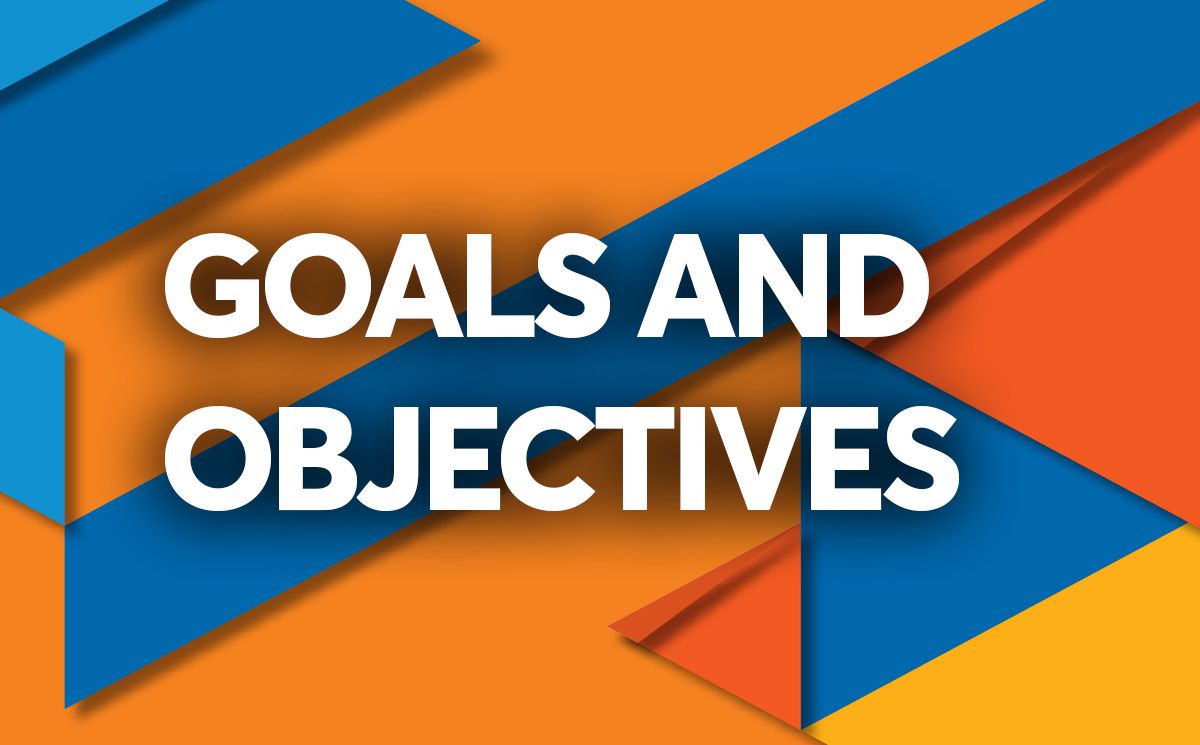
GOALS AND OBJECTIVES
1. We will address barriers to and improve sexual and reproductive health and rights status of the Canberra community.
(a) We will deliver high quality services that support and improve the sexual and reproductive health status and wellbeing for all Canberrans.
(b) We will make our services known, accessible and used by those who need or benefit from them.
2. We will increase the profile of sexual and reproductive health issues and address barriers to reproductive and sexual health with policymakers, decision makers and the broader community.
(a) We will collaborate effectively with key partners and build new partnerships to achieve We will demonstrate and share effective models for improving reproductive and sexual health and rights, and address barriers to reproductive and sexual health
(c) We will lead responses that support sexual and reproductive health and rights, and influence public policy and systems to improve health outcomes and respect for sexual and reproductive health and rights for individuals, couples, families and communities.
3. We will strengthen our organisational systems, capacity and capabilities.
(a) We will invest in the staff, facilities, information and communications technology infrastructure required to achieve our goals and mission.
(b)We will accurately understand our relative strengths and competitive advantage, and plan accordingly.
(c) We will invest our financial resources to support services, activities and programs that improve reproductive and sexual health and rights in the Canberra community.

VALUES & PRINCIPLES
OUR VALUES
- We value person-centred and pro-choice service delivery.
- We value the benefits and challenges that come from our community’s diversity, and are committed to learning with and from diverse community members to better advocate for and address their needs.
- We value the understanding of community health needs and health outcomes that derive from an analysis of the social determinants of health and wellbeing.
- We value sharing of information about community needs in order to collaboratively address diverse health needs through targeted prevention and intervention approaches.
OUR APPROACH
- We work within a health promotion framework that unites the various services and diverse activities undertaken by the organisation in achieving our purpose.
- We work within, and advocate for, a comprehensive definition of sexual and reproductive health consistent with the World Health Organisation’s definitions.
- We work using the lens of evidence-based healthcare.
- We work to achieve equitable access to high quality, affordable, relevant and accessible services for priority populations.
OUR PRINCIPLES
- We affirm that sexual and reproductive rights are human rights related to sexuality, reproduction and relationships.
- We affirm that the expression of sexuality occurs across the lifespan, and that sexual and reproductive health needs evolve and change at different stages of life, and in different social and relational contexts.
- We affirm the anti-discrimination principles set out in ACT and Australian laws and international conventions.
- We affirm the need to use capacity building approaches and work in partnership with others.

OUR SERVICES
PROVISION OF REPRODUCTIVE AND SEXUAL HEALTH CLINICAL SERVICES
SHFPACT makes a direct contribution to ensuring high quality, accessible and affordable clinical services for the Canberra community.
- Delivering free sexual and reproductive health clinical services funded by our service funding agreement with ACT Health, including in outreach settings.
- Applying a billing concessions policy to other unfunded family planning, reproductive health and sexual health services that minimises or eliminaes the cost barrier for clients.
- Facilitating outreach clinical activities to reach individuals and communities who may not access a mainstream clinic.
The SHFPACT Clinic operates primarily on a fee-for-service basis — a bulk-billed/concession or standard fee is charged for most services. Services that are billed to or rebated by Medicare are not funded by or reported to ACT Health.
In 2022-23 the SHFPACT Clinic provided 5,182 consultations in total (increase 15% from prior year).
SHFPACT ACCESS CLINIC AND OUR OUTREACH SERVICES
These services are funded by ACT Health and free to the client. At SHFPACT’s primary clinic location, these provide access to the full suite of reproductive and sexual health services at no charge, and are accessed primarily by young people and people who experience financial barriers accessing healthcare.
In outreach settings, these services are delivered primarily in partnership with outreach health education and sexual health testing activities such as the Sexual Health Lifestyles & Relationships Program (SHLiRP) with Canberra Sexual Health Centre (Canberra Health Services) to ACT senior secondary colleges, and on-campus residential colleges outreach health promotion and testing events.
In 2022-23, 882 clinic consultations (17% of total clinical services provided by SHFPACT) were directly funded by ACT Health and provided free to the client through the SHFPACT Access Clinic program and clinical outreach services. An additional 935 nursing consultations (18% of total) were subsidised by ACT Health, delivered in conjunction with clinical training placements. These were principally cervical screening and STI screening services.
ACCESSIBLE HEALTHCARE SERVICES
CONCESSION AND BULK-BILLED SERVICES
42% of SHFPACT’s unfunded clinic consultations were bulk-billed or low-fee services in line with SHFPACT’s own concession eligibility criteria.
The annual unfunded value to SHFPACT for the provision of low-cost consultations is over $100,000 in reduced revenue. In line with SHFPACT’s strategic financial commitments to re-invest in low-cost accessible clinical healthcare, the proportion of bulk-billed and concession fee services has been increasing each year, increasing from 31.5% in 2021-22 to 42% this year.
The routine and regular flow of patient care delivered in unfunded clinical services is central to SHFPACT’s ability to provide high quality, intensive clinical training placements for medical and nursing professionals. These workforce development and clinical training programs are substantially funded and subsidised through financial support from ACT Health.
SHFPACT Clinic continues to be a trusted referral point by general practice, and other primary and specialist healthcare services, to address more complex health needs in our areas of distinctive expertise: contraception, menopause, cervical screening, and other investigations related to important health conditions like pelvic pain and painful sex.
CONTINUING TELEHEALTH ACCESS
The availability of MBS items for telehealth services items is essential to support community access to sexual and reproductive healthcare. These items had been restricted from July 2020 until July 2021. SHFPACT, and many other sexual and reproductive health services nationally, advocated strongly at the Commonwealth and State/Territory levels about the access impacts of this decision, which was ultimately successful in restoring access. In 2022-23, 319 of clinic consultations were telehealth attendances. There will always need to be a balance between in-person and telehealth services in healthcare. For clients who have difficulty accessing services in-person, and for servies that are safely and appropriately provided this way, telehealth provides an effective alternative point of connection.
NEW PELVIC PAIN AND ENDOMETRIOSIS SERVICES
In late 2022, SHFPACT was identified as an obvious candidate as the ACT hub for new Australian Government funding for pelvic pain and endometriosis GP clinics. We were gratified by this acknowledgement by our colleagues in primary healthcare, and worked with Capital Health Network to prepare an ACT submission for the funding.
SHFPACT hosted the national announcement and launch of the new clinics by Assistant Minister for Health Ged Kearney, as one of 21 programs ultimately resourced across Australia. While the models of delivery will vary across Australia, SHFPACT’s proposal centres significantly on addressing the systemic gaps and workforce development alongside standing up a new primary care based access point.
We have valued the engagement and support of our colleagues in Canberra Health Services in establishing the project and our new service model, which represents an important evolution of SHFPACT’s scope of clinical practice.
Endometriosis and pelvic pain are notoriously poorly responded to, with limited service availability for what is a complex, dynamic and evolving experience that requires multidisciplinary care. We also recognise the opportunity that early health education on period pain and pelvic pain can potentially have on improving health outcomes over the life course for people with pelvic pain. The first consultations at SHFPACT were delivered from late September 2023.
UNPLANNED PREGNANCY COUNSELLING
SHFPACT provides the only free, all-options, unbiased pregnancy counselling service in the ACT, to assist women with an unplanned pregnancy by providing information and counselling support. The service can also extend to their partner and other family members, or partner-in-pregnancy.
PROFESSIONAL EDUCATION AND TRAINING, SUPPORTING CONTINUING PROFESSIONAL DEVELOPMENT FOR THE HEALTH, EDUCATION AND COMMUNITY SERVICES WORKFORCE
Beyond direct service delivery activities in clinical services, health education and sexual health promotion, SHFPACT works towards improving the accessibility and quality of services provided to the Canberra community through our significant focus on workforce development.

FINANCIAL PERFORMANCE
Members will notice significant increases compared to the prior year in the cash assets and other current liabilities in the balance sheet and cash flow position for the financial year that reflects increased funding streams and income in advance received in financial year 2022 and carried forward to future years, most notably from the payments of SHFPACT’s funding contract with Dept of Social Services for the Safer Girls Safer Women project.
Other income in advance from the ACT Healthy Canberra Grants, the first tranche of funds for the Endometriosis & Pelvic Pain GP Clinics (Australian Dept of Health via Capital Health Network), and funds in advance from ACT Community Services Directorate in June 2023 for community-based sexual violence prevention projects also contribute to this difference. Other current assets and current liabilities remained stable on trend with previous years.
SHFPACT ended the financial year with a current ratio of 1.23:1 compared with FY2021 1.35:1. This falls below the financial sustainability target of a current ratio of 2:1, as a result of the carrying balances for project funds in advance carried forward. The relevant funding contracts permit such carrying forward of unexpended funds, and advised last year will continue for at least the next financial year.
In the first full year of the Safer Girls Safer Women Project, SHFPACT’s overall grants and contract revenue nearly doubled compared with last year.
SHFPACT’s self-generated revenues fluctuated: fees income for unfunded clinical services grew by 5%, where education/training income was generally lower and has not yet recovered to pre-pandemic levels of activity.
The exceptions were interest income, well above trend over the last 10-15 years, but reflecting inflation and cost of living pressures globally, nationally and in the Canberra community, and donations which nearly doubled. We thank our members and donors for their generosity.
In 2023, SHFPACT has returned a small deficit result of $6,092 (FY2022: surplus $34,612).
SHFPACT Council approved a budget in June 2023 anticipating a deficit result for financial year 2022-23. The initial budget was approved prior to the finalisation of some additional funding contracts for the following financial year.
On review conducted after the first quarter of the financial year and with those additional funding arrangements confirmed, the anticipated result was updated to a small surplus of $22,000.
statements for financial year 2023 was conducted by Bellchambers Barrett. This is the fourth audit conducted by the firm for SHFPACT. The audit finding is an unqualified result.
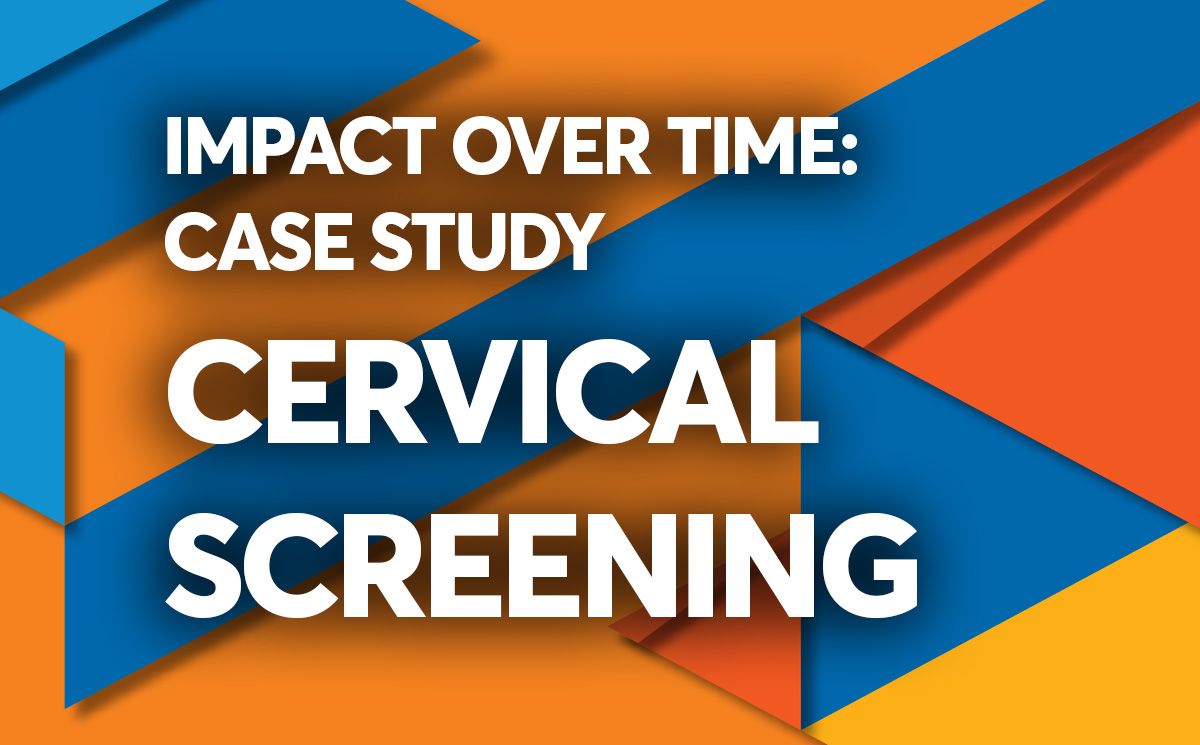
CASE STUDY : CERVICAL SCREENING
The way SHFPACT has responded to and promoted important changes in medical technology and innovation in healthcare provision, through its direct clinical services, its focus on skilling the health and health promotion workforce, and community education and information services, provides an exemplar of how the edge of our work is always moving in the right direction to achieve our purpose of improving sexual and reproductive health and rights in the Canberra community.
We adapt the scope of our services, our health information and health promotion activities, and our education and training focus to reflect the evidence changing needs, and to position our work to be contributing to the known and emerging issues we are best placed to address.
Cervical screening services have been a core of SHFPACT’s clinical services, workforce development activities and health promotion efforts for decades. For a long time, screening services have been delivered substantially by our experienced sexual and reproductive health nurses at SHFPACT, working alongside medical officers who generally focus more on services where people have symptoms.
SHFPACT has a positive reputation in the community for skilled, confident and supportive healthcare. And our training programs over decades share these skills with practice nurses across the Capital region, helping to ensure people get safe, supportive and skilled care for this important cancer prevention screening service.

SAFER GIRLS SAFER WOMEN
Our Project Vision
A future where people with disability, inclusive of all identities, experience social and sexual safety everywhere and always.
Summary of our Project
The Safer Girls Safer Women Project (the Project) is led by Sexual Health and Family Planning ACT (SHFPACT) and funded by the Department of Social Services, in alignment with Australia’s Disability Strategy 2021-31 (National Strategy) and the National Plan to End Violence against Women and Children 2022-32 (National Plan).
The Project objectives are to increase workforce capability to create and support the social and sexual safety of girls, women and gender diverse people with disability. This three-year funding phase is coming to an end in June 2024.

SPECIAL THANKS
- A Gender Agenda
- Association of Parents & Friends of ACT Schools (APFACTS)
- Assurance Accounts
- Australasian Sexual Health & HIV Nurses Association (ASHHNA)
- ACT Community Services Directorate
- ACT Council of Social Service (ACTCOSS)
- ACT Education Directorate
- ACT Health Directorate
- ACT Office of LGBTIQ+ Affairs
- ACT Office of the Coordinator-General for the Prevention of Family,
- Domestic & Sexual Violence
- ACT Teacher Quality Institute (TQI)
- ACT Walk In Centres, Canberra Health Services
- ACT Youth Advisory Council
- Australian College of Rural & Remote Medicine
- Australian Education Union (ACT)
- Australian Government Dept of Social Services
- Australian National University
- ANU Medical School
- ANU Respectful Relationships Unit
- ANU Students Association
- Australian Primary Health Nurses Association (APHNA)
- Australian Research Centre in Sex, Health & Society (ARCSHS), La Trobe University
- Bellchambers Barrett
- Canberra Institute of Technology
- Canberra Rape Crisis Centre
- Canberra Sexual Health Centre, Canberra Health Services
- Capital Health Network Capital Pathology
- Capital Region Community Services (CRCS)
- CentreRed IT CIT Students Association
- Forensic & Medical Sexual Assault Care, Canberra Hospital
- FUSE Magazine
- Griffin Legal
- Hepatitis ACT
- LEAD
- Lithium Innovation Pty Ltd
- Meridian (Formerly AIDS Action Council of the ACT)
- Northside Community Service
- Parents & Citizens Council of the ACT
- Relationships & Sexuality Education Alliance
- Royal Australasian College of General Practitioners (RACGP)
- Society of Australian Sexologists (SAS)
- The STOP Campaign
- University of Canberra School of Education University of Canberra
- School of Midwifery UC Medical & Counselling Centre
- UC Students’ Association
- Winnunga Nimmityjah Aboriginal Medical Service
- Women’s Health Matters
- Women’s Health Service, Canberra Health Services
- Women With Disabilities ACT (WWDACT)
Our members and clients who donated to SHFPACT, and employees of the Commonwealth and ACT Public Services who donated to SHFPACT through payroll deduction schemes, contributing to our continuing ability to improve reproductive and sexual health in the Canberra community.
Presenters from our community partner organisations and community of professional support who contributed to outstanding learning opportunities for participants in our training programs.
Students and staff of ACT schools who supported delivery of sexual health and relationships education programs and sexual health promotion activities.
Residents and staff of university residential colleges who facilitated and participated in sexual health promotion outreach activities.
Members of the SHFPACT Council, who voluntarily contribute their time, expertise and wisdom to guide the organisation on behalf of the wider membership.
Members of the ACT Legislative Assembly for continued public advocacy to support all students to be welcome, safe and included in Canberra schools regardless of sexuality, intersex status, or gender identity/presentation, and for sexual health public policy that supports a diverse community.
SHFPACT’s SoSAFE! Training Partners:


